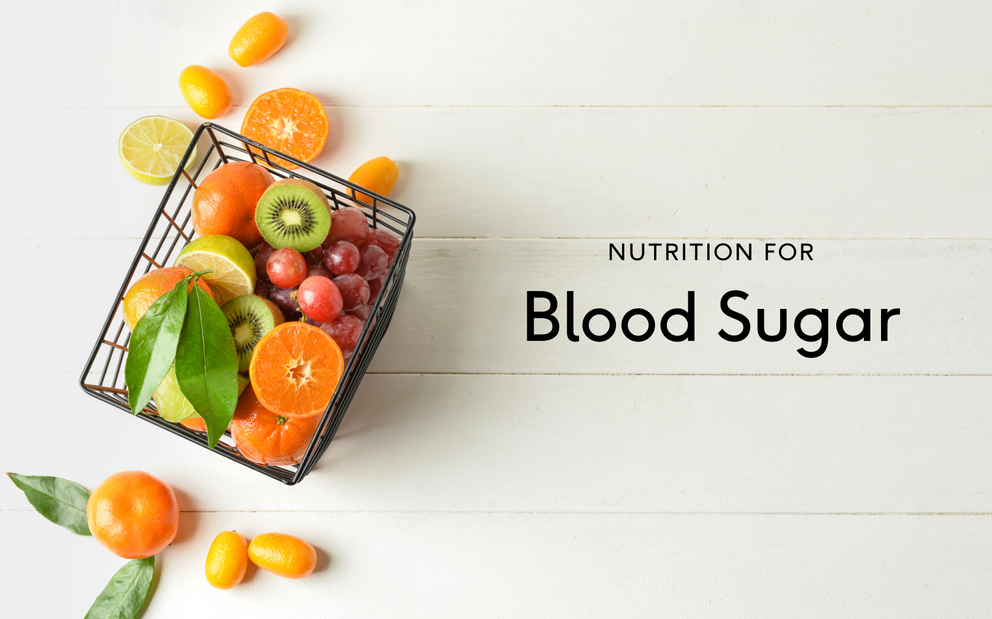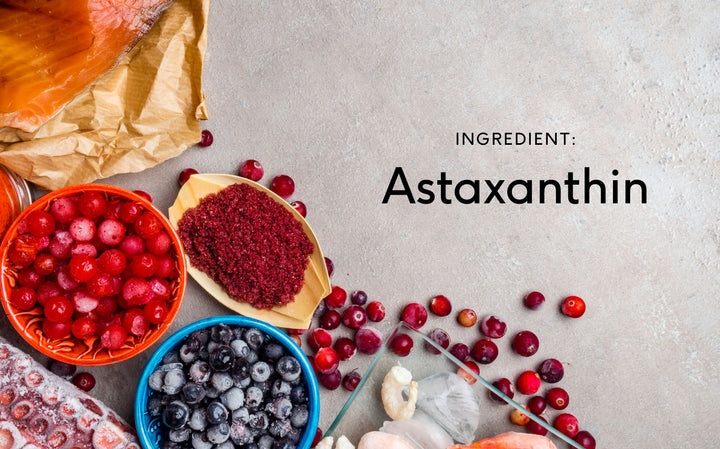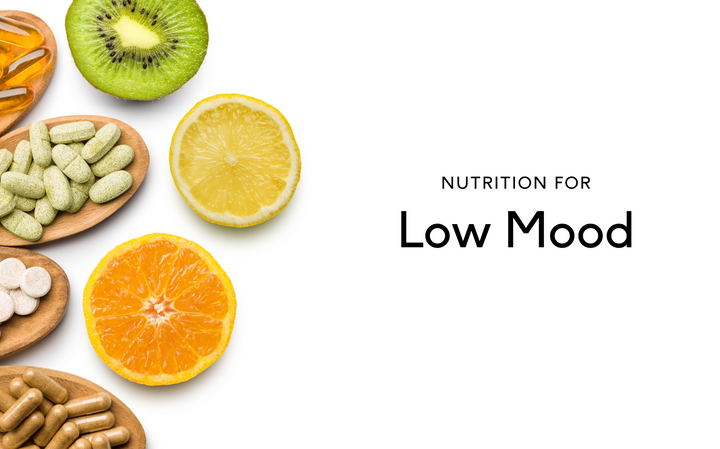Best Vitamins and Minerals to Balance Blood Sugar Levels [2025 Nutritionist Reviewed]
Lara is a Registered Nutritional Therapist and founder of Nutrition for Vitality and the 28-Day Hormone Makeover online programme. She is an experienced practitioner, with a particular interest in female health and hormone balancing, weight management and weight loss resistance, gut health, chronic fatigue, and fibromyalgia.
Lara is a Registered Nutritional Therapist and founder of Nutrition for Vitality and the 28-Day Hormone Makeover online programme. She is an experienced practitioner, with a particular interest in female health and hormone balancing, weight management and weight loss resistance, gut health, chronic fatigue, and fibromyalgia.
Table of contents

| What are the blood sugar ranges? |
Normal: Below 42 mmol/mol (6.0%) Prediabetes: 42 to 47 mmol/mol (6.0 to 6.4%) Diabetes: 48 mmol/mol (6.5% or over) |
| Symptoms of unbalanced blood sugar levels |
Lethargy, anxiety, low mood, sugar cravings, brain fog, poor sleep, dull complexion |
| Conditions associated with high blood sugar levels |
Type 2 diabetes, Heart disease, Kidney damage, Nerve damage, Impaired vision, Certain cancers |
| What Vitamins can help balance blood sugar levels |
Vitamin B12, Vitamin D, Vitamin A, C, E, and Vitamin K |
| What Minerals can help balance blood sugar levels | Magnesium, Chromium |
| What additional ingredients can help balance blood sugar levels | ALA, Probiotics, Fenugreek, Bitter Melon, Berberine, Cinnamon |
1. Understanding Blood Sugar Levels

Naturally, our blood sugar levels will rise and fall after every meal or snack we consume that contains a source of carbohydrates. Following ingestion, carbohydrates are broken down into simple sugar molecules including glucose, which is absorbed by the intestines and enters the bloodstream; increasing blood sugar levels.
What is Blood Sugar?
The term “blood sugar” also known as ‘blood glucose’ simply refers to the amount of sugar (primarily glucose) present in the bloodstream at one moment in time. Whereas blood sugar regulation or ‘blood sugar balance’ refers to the process in which blood sugar levels are maintained within the optimal range:
Target Fasted Blood Glucose Levels :
- (4-6mmol/L) (non-diabetic)
- (4-7mmol/L) (diabetic)
When blood sugar levels rise the hormone insulin is secreted from the pancreas, allowing glucose to exit the bloodstream and enter the body’s cells where it can be used as energy, or stored in the liver in the form of glycogen1. In essence, insulin acts as the key to the door of the body’s cells. Conversely, when blood sugar levels dip, for example, in-between meals or during long bouts of exercise glucagon is secreted, triggering the liver to convert stored glycogen back into glucose and restoring blood sugar levels1.
2. Balanced Blood Sugars vs Unbalanced Blood Sugars
The key difference between a healthy blood sugar response and a not-so-healthy one is dependent on how high your blood sugar levels rise following a meal or snack, how quickly they are brought back down to optimal levels and whether or not they dip below baseline before re-stabilising.
A balanced blood sugar response would be one that rises steadily and returns to baseline fairly quickly after eating. Whereas an ‘unbalanced’ or ‘unhealthy’ blood sugar response would be one that spikes rapidly and then dips below baseline levels, resulting in a blood sugar crash.
3. Why Should We Keep Our Blood Sugar Levels Balanced?
Over time, frequent blood sugar peaks and troughs can result in a cascade of inflammation, insulin resistance, and weight gain, which are associated with the development of type 2 diabetes, high blood pressure, heart disease and metabolic complications1. Additionally, poor blood sugar control can disrupt our fasting glucose and cortisol levels (the stress hormone), adding unnecessary strain to the body, and contributing towards imbalances in the whole hormone (endocrine) system2.
Many of us understand the long-term importance of keeping our blood sugar levels balanced, however, few recognise the influence our blood sugars can have on a day-to-day basis. When our blood sugars are in balance, not too high and not too low, we feel our best as balanced blood sugars help to keep our energy steady, mood stable, skin vibrant, brain clear and healthy, and we feel satiated3,4. However, when out of whack, our blood sugars can leave us feeling lethargic, and anxious, with sugar cravings and brain fog, as well as having a detrimental impact on the quality of our sleep and the look of our complexion3,4,5.
4. What Vitamins are Good for Balancing Blood Sugar Levels?
Vitamins and minerals are essential micronutrients that play a vital role in maintaining our overall health and well-being. While there is no set of supplements that will effectively balance blood sugar levels, there are some vitamins and minerals that can support the production of insulin and protect the pancreatic beta cells (site of insulin production) from oxidative damage over time.
Several nutrient deficiencies have been associated with type 1 and type 2 diabetes including Vitamin B12 and other B Vitamins, Vitamin D and Magnesium. Supplementing with appropriate levels of Vitamin D, Magnesium and Chromium, and antioxidants such as alpha-lipoic acid (ALA) has been associated with significantly improved blood sugar levels6. Cinnamon is also believed helpful for supporting blood sugar balance.
However, it is important to note that while they can be beneficial, a multivitamin supplementation should not be used in place of a healthy diet and regular exercise, nor should they be used as a replacement for diabetic medication or other treatments prescribed by a healthcare professional. Certain vitamins, minerals and herbal therapies can interact with prescribed medications and so you should always contact your healthcare provider before introducing a new dietary supplement.
5. What is High Blood Sugar?

High blood sugar, also known as hyperglycemia, occurs when the levels of glucose in the blood are higher than normal and is most found in people living with diabetes7. It can be a result of insufficient insulin production or the body not responding to insulin properly (insulin resistance) and if left untreated, high blood sugar levels can lead to serious complications such as type 2 diabetes and diabetic neuropathy, and can increase the biological risk factors for heart disease and kidney damage.
According to the NHS a high blood sugar reading is regarded as a fasting plasma glucose reading above 7mmol / L7. However, as blood sugar levels can fluctuate significantly across the day HbA1c levels must also be recorded. HbA1c refers to glycated haemoglobin, which is a molecule that is formed when the sugar in your body sticks to your red blood cells (haemoglobin). When this happens your body can’t use the sugar properly and therefore it begins to build up in your blood.
As red blood cells are active for around 2-3 months, HbA1c levels are able to describe the average blood sugar levels across this period and give a much more accurate description of your body’s glucose tolerance7.
Ideally, a normal HbA1c level would be in the early-mid 30’s as an HbA1c target level between 42- 48mmol/mol would be considered prediabetic (insulin resistant)8.
6. Can Vitamins Help with High Blood Sugar Levels?
High blood sugar levels or “hyperglycemia” is where levels of sugar in your blood are too high and if not treated can cause serious physiological damage7. It occurs when the body is unable to lower blood sugar levels due to insulin resistance or the body is unable to produce enough insulin to meet glucose demands and mostly affects people living with diabetes. However, over time, even mildly elevated blood sugar levels can be detrimental in diabetic and non-diabetic patients.
While dietary interventions, exercise and medication are the primary therapies prescribed to manage high blood sugar, dietary supplements can have a beneficial effect.
7. What is Low Blood Sugar?
Low blood sugar, also known as hypoglycemia, occurs when the amount of glucose (sugar) in the blood drops below normal (< 4mmol / L)9. This can happen if there is an overproduction of insulin, decreased glucose intake, or increased glucose utilisation (for example during intensive exercise.
People with diabetes are at a higher risk of developing low blood sugar, especially if they are taking insulin or other blood sugar-lowering medications. However, low blood sugar can also occur in people without diabetes during long bouts of intensive exercise or long gaps between meals.

NHS symptoms of low blood sugar9:
- Weakness
- Dizziness
- Shaking
- Confusion
- Sweating
- Irritability
8. What Vitamins are Good for Low Blood Sugar?
Vitamins alone are unable to restore low blood sugar levels, and if an episode of low blood sugar occurs it is important to eat a source of high glycemic carbohydrates to restore blood glucose levels.
That being said, Vitamin B3 (niacin) a water soluble B-vitamin that works in the body as a coenzyme and convert nutrients into energy and exerts antioxidant effects has been found to increase fasting blood glucose and insulin levels in people with and without diabetes10.
9. What Vitamins are Good for High Blood Sugar?
Vitamin B12
Vitamin B12, or cobalamin, is essential for the function and development of brain and nervous system, the formation of red blood cells and the synthesis of DNA. It is naturally found in animal foods, or it can be added to foods or supplements.
Studies have shown that people with type 2 diabetes tend to have lower levels of vitamin B12 than those without, particularly if they are on metformin a blood glucose-lowering medication11. Although the current evidence does not suggest that supplementation with Vitamin B12 can help to manage blood sugar levels, people with hyperglycemia may benefit from a Vitamin B12 supplement if a deficiency is present11.
Vitamin D
Vitamin D is a fat-soluble vitamin that exists in two main forms:
- Vitamin D2 (ergocalciferol), found in some plants and fungi
- Vitamin D3 (cholecalciferol), found in animal products like dairy and eggs, and it is also produced endogenously when ultraviolet (UV) rays from sunlight strike the skin.
Vitamin D plays an important role in stimulating insulin release by the pancreatic beta cells and several studies have associated suboptimal blood levels of vitamin D with elevated blood sugar levels12.
In a double-blind, placebo-controlled randomized clinical trial adults with pre-diabetes and vitamin D deficiency were randomly assigned to either vitamin D3 supplementation or placebo. Following six months of intervention, vitamin D supplementation was found to significantly improve insulin sensitivity and decrease the risk of type 2 diabetes13.
Vitamin C, Vitamin A and Vitamin E
Vitamins A, C and E are antioxidants and are most often found in fruits and vegetables. Though they may provide some benefits for diabetic complications including diabetic neuropathy and the reduction of inflammatory biomarkers associated with heart disease and metabolic syndrome14. There is limited evidence to suggest that they can support blood sugar regulation.
Vitamin K
Vitamin K is a fat-soluble vitamin found in two forms, phylloquinone (vitamin K1) and a series of menaquinones (vitamin K2). It plays an important role in blood clotting and bone metabolism and though it has not been widely studied, several human studies have reported a beneficial role of vitamin K supplementation in improving insulin sensitivity and glucose tolerance15.
10. What additional nutrients can balance blood sugar levels?
Magnesium
Magnesium is an essential mineral that is involved in many biological processes, including glucose metabolism. High blood sugar levels and insulin resistance are often associated with low magnesium levels and studies have shown that magnesium supplementation at 300 mg /day can significantly improve fasting blood glucose levels, and 2-hour postprandial glucose (blood sugar levels following a meal)16.
Additionally, magnesium has been found to have a positive impact on pancreatic beta-cell function16.
Chromium
Chromium is a trace element obtained in the diet through foods such as fish, clams, meat, whole-grain cereals, and nuts. Although a threshold for chromium deficiency has not been established, chromium levels are notably lower in people with type 2 diabetes than in the general population17.
A recent meta-analysis of randomised control trials concluded that chromium supplementation in a period of 4 to 25 weeks of intervention and at doses of 50 to 1000 μg /day of chromium supplementation significantly reduced fasting plasma glucose levels, insulin resistance, and HbA1c levels18.
Alpha-lipoic-acid (ALA)
ALA is a potent antioxidant synthesized in the mitochondria and plays an essential role as a cofactor, assisting in the enzymatic breakdown of nutrients.
ALA supplementation has been found to significantly decrease fasting blood sugar levels, insulin resistance and HbA1c levels among people with metabolic disorders such as type 2 diabetes19. Moreover, ALA supplementation has also been found to reduce blood lipids including triglycerides and total LDL-cholesterol levels19.
Probiotics
Probiotic supplements are live microorganisms including bacteria and fungi that are intended to have positive digestive and gut health benefits when consumed. They are found in the form of dietary supplements or in fermented foods such as yoghurt and kimchi. The most common probiotics are bacteria that belong to groups called Lactobacillus and Bifidobacterium.
Research suggests that probiotic consumption when compared with placebo can improve insulin resistance, and significantly reduce fasting blood glucose levels and fasting plasma insulin levels. Additionally, gut dysbiosis (an imbalance of good and bad bacteria in the gut) has been associated with the development of type 2 diabetes20.
Protein and amino acids
The role of protein and amino acids have been repeatedly discussed, as they are believed to improve insulin secretion and contribute towards blood glucose regulation in type 2 diabetes patients21.
The reason why protein does not increase blood glucose levels is still unclear, but research has suggested a few reasons. The metabolisation of protein is much more complex and therefore there is a slower conversion to glucose, in addition the process of gluconeogenesis from protein occurs over a period of hours, preventing rapid blood glucose spikes. For these reasons, those who suffer from generally high blood sugar levels or type 2 diabetes, consuming low-fat proteins with every meal is essential, especially when eating a carbohydrate-rich meal22.
11. What Herbal Ingredients Can Balance Blood Sugars
In addition to vitamin and mineral supplementation, herbal supplements that have traditionally been used in Chinese medicine and Ayurveda such as fenugreek, berberine, and gymnema sylvestre have been shown to support blood glucose control by increasing insulin sensitivity and decreasing fasting blood glucose levels.
Fenugreek
Fenugreek is a widely used herb in many countries including India, China and Egypt. Although commonly used in cooking, fenugreek is also used in patients with diabetes, especially in countries with limited healthcare access.
In animal studies, fenugreek has been found to reduce glucose absorption in the gastrointestinal tract, as well as encourage slower digestion of carbs. This is primarily due to the high content of dietary fibre and pectin in fenugreek which is responsible for slowing gastrointestinal transit23.
Fenugreek seeds also contain free amino acids, which have the potential to stimulate insulin release in the presence of elevated glucose concentrations, potentially increasing insulin sensitivity23.
Bitter melon
Research has shown that bitter melon may aid in hyperglycemia and diabetes management. Bitter melon, also known as bitter gourd or karela, is a unique vegetable/fruit that contains at least three substances with anti-diabetic properties, including: charanti which has the capacity to lower blood glucose levels, vicine and a compound similar to insulin known as polypeptide-p24.
In a 2011 study, 2,000 mg daily dose of bitter melon significantly reduced blood glucose levels among patients with type 2 diabetes, though promising its hypoglycemic effect less than 1000mg/day dose of metformin medication24.
Berberine
Berberine has been used for centuries in traditional Chinese medicine to help treat infections, and research indicated that it may increase insulin sensitivity and insulin production for people with type 2 diabetes25.
Research also suggests that berberine may increase the effectiveness of some diabetes medications when taken adjunctively26.
Gymnema Sylvestre
Gymnema sylvestre is a woody climbing shrub that grows in the forests of India, Africa and Australia. It is also known as gurmar, which is Hindi for “destroyer of sugar” and has long been regarded as ‘anti-diabetic’.
It is thought to suppress sugar cravings by reducing the ability to taste sweetness and research highlights gymnema sylvestre supplementation in doses of 300 mg/day to significantly improve glucose tolerance, reduce HbA1C levels and increase insulin sensitivity27.
Cinnamon
There is continual research on the effects of Cinnamon and helping to reduce baseline fasting blood glucose levels, however there is some evidence that cinnamon might help the body use insulin more efficiently. In a particular study, it was found that Cinnamon does possess anti-hyperglycaemic properties and the potential to reduce postprandial blood glucose levels28. In a meta-analysis of 10 randomised control studies with 543 Type 2 diabetic patients, cinnamon doses of 120 mg/d to 6 g/d for 4 to 18 weeks reduced levels of fasting plasma glucose29.
12. When is best to take vitamins for balancing blood sugar levels?

The best time to take vitamins for blood sugar balance can vary depending on the specific vitamin and the individual's unique healthcare needs. It's always important to follow the dosing instructions on the vitamin supplement and to consult with a healthcare professional before starting any new supplement regimen.
Some vitamins, such as Vitamin D and Vitamin K are best taken with a meal that contains fat as they are fat-soluble and better absorbed by the body this way. Taking fat-soluble vitamins with a meal can also help to prevent stomach upset.
Other vitamins such as Vitamin C, ALA and other antioxidants can be taken at any time, as they are water-soluble and do not need to be taken with a meal to be absorbed by the body.
While vitamins, such as chromium, and magnesium are recommended to be taken before meals, as they help to regulate blood sugar levels during and following meal times.
13. How long does it take for vitamins to work for balancing blood sugar levels?
The time it takes for vitamins to work in supporting blood sugar regulation can vary depending on several factors including the specific vitamin taken, the dosage, and the individual's health status.
For example, vitamin D supplements may take a few weeks or even months to be fully effective in maintaining healthy blood sugar levels. This is because vitamin D is fat-soluble, which means it is stored in the body's fat cells, so it may take some time for the body to build up enough vitamin D to impact blood sugar levels13.
Whereas chromium supplements may take a few days to a week to start working as chromium is water-soluble and the body can excrete excess chromium, so it doesn't accumulate in the body like fat-soluble vitamins.
Caution should still be taken when consuming water-soluble vitamins and antioxidants like ALA, as more is not necessarily more and the DRVs (daily recommended values) should always be considered, and a healthcare provider consulted.
14. Possible side-effects of taking vitamins for blood sugars?
Taking vitamins for blood sugar levels can have potential side effects if the correct dosing is not followed, however, this will vary greatly depending on the vitamin taken and the health of the individual. Some of the most common side effects associated with incorrect vitamin supplementation include30.
- Nausea and upset stomach: Some individuals may experience digestive discomforts, such as nausea or upset stomach, after taking vitamins.
- Diarrhoea: Diarrhoea can occur as a result of taking vitamins for blood sugar levels, particularly when taken in large amounts.
- Headaches: Some individuals may experience headaches as a side effect of taking chromium for blood sugar levels
- Bloating: Taking vitamins can cause bloating in some individuals, particularly if they are taking larger doses than recommended.
- Allergic reactions: Some people may experience an allergic reaction, such as itching or skin rashes when taking vitamins for blood sugar levels.
It is important to note that everyone reacts differently to vitamins, and some people may experience more or fewer side effects than others. If you are experiencing any side effects from taking vitamins for blood sugar levels, it is recommended that you speak with your doctor as they can help determine if the side effects are related to the vitamins and determine the best course of action for you.
References
- https://www.ahajournals.org/doi/full/10.1161/CIRCULATIONAHA.106.685628
- https://pubmed.ncbi.nlm.nih.gov/30623794/
- https://www.ncbi.nlm.nih.gov/pmc/articles/PMC5154680/
- https://www.ncbi.nlm.nih.gov/pmc/articles/PMC6047276/
- https://www.ncbi.nlm.nih.gov/pmc/articles/PMC7643604/
- https://diabetes.org/healthy-living/recipes-nutrition/vitamins-diabetes
- https://www.nhs.uk/conditions/high-blood-sugar-hyperglycaemia/
- https://www.nice.org.uk/guidance/ng28/chapter/Recommendations#hba1c-measurement-and-targets
- https://www.nhs.uk/conditions/low-blood-sugar-hypoglycaemia/
- https://www.ncbi.nlm.nih.gov/pmc/articles/PMC4211901/
- https://pubmed.ncbi.nlm.nih.gov/31463884/
- https://systematicreviewsjournal.biomedcentral.com/articles/10.1186/s13643-020-01433-3
- https://pubmed.ncbi.nlm.nih.gov/30583032/
- https://diabetesjournals.org/care/article/27/2/362/28291/Dietary-Antioxidant-Intake-and-Risk-of-Type-2
- https://pubmed.ncbi.nlm.nih.gov/27133809/#:~:text=Vitamin%20K%20is%20well%20known,2%20diabetes%20(T2%20D).
- https://www.ncbi.nlm.nih.gov/pmc/articles/PMC4219896/
- https://pubmed.ncbi.nlm.nih.gov/15208835/
- https://pubmed.ncbi.nlm.nih.gov/32730903/
- https://pubmed.ncbi.nlm.nih.gov/29990473/
- https://www.ncbi.nlm.nih.gov/pmc/articles/PMC4498615/
- Dietary protein and blood glucose control - PubMed (nih.gov).
- Protein: metabolism and effect on blood glucose levels - PubMed (nih.gov)
- https://www.ncbi.nlm.nih.gov/pmc/articles/PMC4591578/#:~:text=Research%20in%20the%20past%20two,subjects%20was%20reported%20%5B9%5D.
- https://www.diabetes.co.uk/natural-therapies/bitter-melon.html
- https://pubmed.ncbi.nlm.nih.gov/25861268/
- https://pubmed.ncbi.nlm.nih.gov/25498346/
- https://pubmed.ncbi.nlm.nih.gov/32460589/
- The potential of cinnamon to reduce blood glucose levels in patients with type 2 diabetes and insulin resistance - PubMed (nih.gov)
- Cinnamon use in type 2 diabetes: an updated systematic review and meta-analysis - PubMed (nih.gov)
- https://www.ncbi.nlm.nih.gov/pmc/articles/PMC6380172/























































 Back
Back




